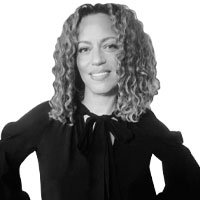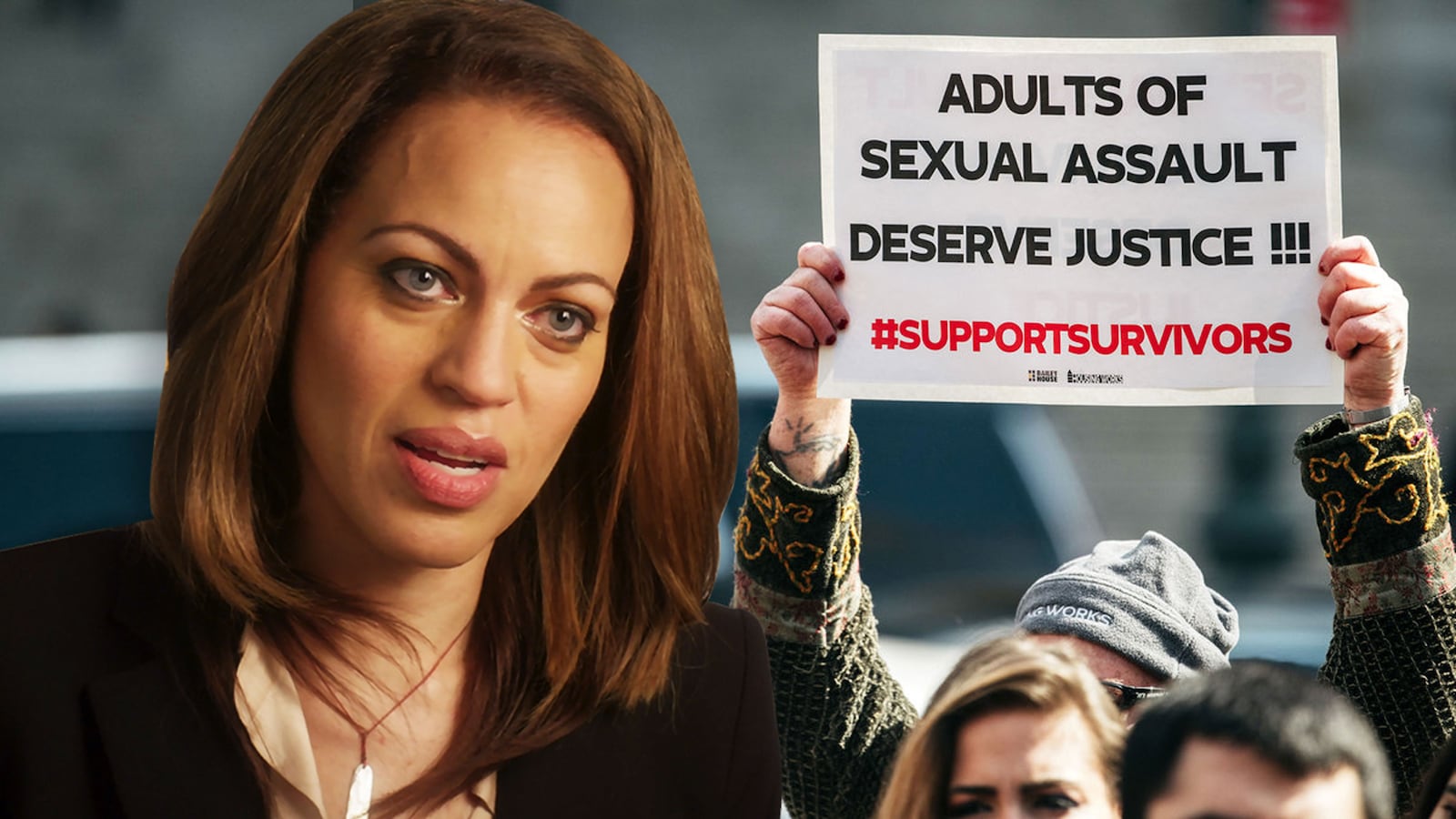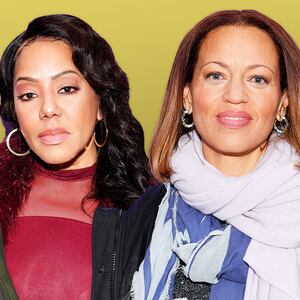I’ve been asked many times, as a survivor of sexual violence, if I’m encouraged by the guilty verdict in the R. Kelly sex-trafficking trial. Unfortunately, I’m not. The yawning delay of justice in the R. Kelly case only reinforced my feeling that victims of sex crimes in America, especially Black women and girls, are unsafe and unseen. More than anything, I was struck by the unfairness of it all.
After the verdict was handed down in a Brooklyn courtroom, I found myself wondering if R. Kelly’s conviction would move the needle for other survivors across the state. Would anything change for the hundreds of thousands of sexual assault victims like me whose assaults took place outside of the statute of limitations? Will survivors whose stories will never be told in a newspaper or documentary series also get a chance at justice, or at the very least, a chance to set the record straight? If the Adult Survivors Act is passed, then the answer is yes.
The tremendous effort that it took to hold R. Kelly accountable underscores the power imbalance that survivors face when confronting our abusers. Even when the perpetrator isn’t a star, the odds are stacked against victims of sexual violence. RAINN estimates that out of every 1,000 rapes, 384 are reported to the police, and of those, only 11 are referred for prosecution. Those statistics are even bleaker for Black women, 1 in 5 of whom are survivors of rape.
Black women in America are more likely to be abused but less likely to be believed, because sex crimes are perpetrated in the context of history. The sexual autonomy of Black women has never been valued in this country, because our experience in America didn’t begin on a pedestal. Black women entered U.S. history on a slave auction block. The rape of Black women and pubescent girls, which was economically incentivized in the transatlantic slave trade, still informs the way Black victims are perceived in a criminal justice system that poorly serves survivors of all races.
This is precisely why I didn’t come forward. When I was raped in 1995, Anita Hill’s testimony from a few years earlier was still fresh in my mind. Her abuser was elevated to the Supreme Court in spite of her courageous decision to come forward, which convinced me that no one would care if I disclosed that I’d been raped by Russell Simmons, the founder of Def Jam Records. At the time, I was a 24-year-old Stanford graduate building a career in the music industry. I wanted to be known for my professional accomplishments, not as the woman who was raped by her boss. I feared that my story would be dismissed by the police, scorned by the Black community, and weaponized by mainstream media to justify America’s brutal treatment of innocent Black men and boys. So I waited. Twenty-two years passed, and the statute of limitations expired. The pain of rape lingers forever, but the opportunity to seek legal redress does not.
It was not until the Me Too movement reframed society’s understanding of sexual violence that I decided to break my silence. I was at a different place in my life. I was in therapy to deal with the rape along with trauma I’d experienced as a child. I’d already walked away from my successful career in the music industry. I no longer feared being exiled, because I’d already exiled myself. I was a stay-at-home mom and couldn’t reconcile remaining silent during this unprecedented moment of reckoning. So, when Russell Simmons disparaged two other survivors who accused him of assault, I told my story to The New York Times. It was a tremendous relief not to carry such a painful secret anymore, but still I feared the backlash. I was right to be afraid.
Two years later, when Oprah Winfrey’s company announced that she was executive producing a documentary about the Russell Simmons survivors, several high profile Black men accused her of being a traitor to the race. As the main subject of the film, I found myself enveloped in a flurry of chaos that culminated in Oprah exiting the project one month later, citing creative concerns. HBO Max stepped in to distribute the movie, which was released in the summer of 2020. The response to the documentary has been overwhelmingly positive, but the vitriol hurled in our direction has been equally overwhelming.
The cognitive dissonance that protects sexual predators, especially when they are beloved icons or pillars of the community, is astounding. More than twenty women have come forward with vetted allegations against Russell Simmons, but he is still embraced by show business insiders. Four years ago, I hoped that principled leaders in the culture would rally in support of Black survivors, but the cavalry for Black women never came.
So last week, when fearless Me Too activist Alison Turkos invited me to attend a press conference in support of the Adult Survivors Act, I almost declined. I wasn’t yet familiar with the ASA, and to be honest, I was exhausted. In spite of that, I agreed to join Alison, because I was excited to meet her in person after connecting virtually in the survivor trenches on Twitter. On our way to the Safe Horizon headquarters, Alison brought me up to speed on the details of the ASA. By the time we arrived, I was convinced that the Adult Survivors Act could be a game changer.
If the ASA passes, it will give survivors who were over the age of 18 at the time of their abuse and are now outside the statute of limitations a one-year look-back window to bring civil suits against their perpetrators or the institutions that protected them. This is a really big deal, because the secondary trauma of not being acknowledged as a victim is almost worse than the underlying violation. It’s almost impossible to heal if you’re hiding your truth to make room for a lie.

Activist Drew Dixon in the HBO documentary On the Record
HBO MaxMy only hope to reclaim my narrative has been in the court of public opinion, because I found myself outside of the statute of limitations by the time I found my voice. If survivors can confront our abusers in a court of law, we would be able to correct the official record once and for all, writing our whole story and our whole selves back into existence. The ASA would empower survivors to move the burden and the shame into the light of day and onto the shoulders of the perpetrators where it belongs.
As the New York Assembly and Governor Hochul decide whether or not to pass the Adult Survivors Act, I urge them to consider the science of trauma. Overly restrictive statutes of limitations are fundamentally inconsistent with the way the human brain responds to severe mental and physical distress. In order to survive during an assault, the brain compartmentalizes. Victims often dissociate—repressing aspects of the experience until it is safe enough to remember. Most sexual assaults are perpetrated by someone within the victim’s web of interpersonal relationships, so the victim may not begin to heal until they have been able to distance themselves from the perpetrator and from any enablers in the web. Until I left the music industry, I wasn’t able to fully process the rape. Other survivors may need to extricate themselves from a school, a religious institution, a job, a sports team or from their own family. So, for that reason alone, the road to recovery can take months, years, decades or a lifetime.
Every human being deserves to live authentically in a world that acknowledges our truth and holds space for our trauma, but before survivors can take on our abusers to set the record straight, we must take the time we need to heal. The path forward for survivors is often arduous and full of challenges, so I hope the New York State Assembly and Governor Hochul will pass the Adult Survivors Act to remove one of the many obstacles victims face by putting time on our side.






